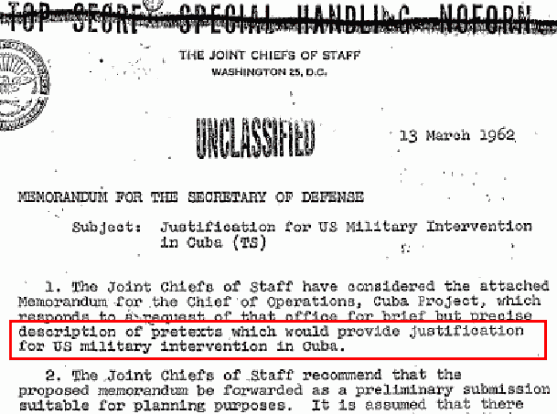In the annals of covert operations, Operation Northwoods stands as a chilling reminder of the extent to which government agencies can go to manipulate public sentiment and justify military intervention. Proposed in the early 1960s by the U.S. Department of Defense, this top-secret plan aimed to stage false flag terrorist attacks on American soil and blame them on Cuba. While the operation was ultimately rejected by President John F. Kennedy, its existence sheds light on the murky world of intelligence operations and the potential for abuse of power.
The Origins of Operation Northwoods
During the height of the Cold War, the United States and Cuba found themselves embroiled in a bitter political and ideological conflict. The Cuban Revolution led by Fidel Castro in 1959 created tensions between the two nations, with the U.S. government increasingly concerned about the spread of communism in the Western Hemisphere.
In this context, Operation Northwoods was conceived by the Joint Chiefs of Staff, the highest-ranking military officers representing each branch of the U.S. Armed Forces. The operation aimed to create a pretext for military intervention in Cuba, with the ultimate goal of overthrowing Castro’s government.
The Proposed Actions
Operation Northwoods outlined a series of deceptive and provocative actions that would justify U.S. military intervention in Cuba. The plan included acts of terrorism and sabotage to be carried out by covert operatives posing as Cuban agents. Some of the proposed actions were:
- Hijacking commercial airplanes and blaming Cuban forces.
- Sinking a U.S. ship in Cuban waters and blaming it on Cuba.
- Staging a terrorist campaign on American soil and blaming it on Cuban sympathizers.
The intent behind these actions was to manipulate public opinion and create a casus belli for a military invasion of Cuba, effectively rallying support for a war against the Castro regime.
Rejection and Aftermath
Although Operation Northwoods was formally presented to President John F. Kennedy’s administration in 1962, it faced significant opposition. Kennedy and his closest advisers, including Defense Secretary Robert McNamara, were troubled by the extreme measures proposed by the Joint Chiefs of Staff.
Ultimately, President Kennedy rejected Operation Northwoods, considering it morally indefensible and a violation of American values. However, the plan’s existence was declassified decades later, revealing the lengths to which certain elements within the government were willing to go to achieve their geopolitical objectives.
Legacy and Implications
Operation Northwoods serves as a stark reminder of the potential abuses of power within intelligence agencies. While the operation was never implemented, its existence raises questions about the true nature of historical events and the narratives presented to the public.
False flag operations have been employed throughout history, with governments using them to manipulate public opinion and justify military actions. Operation Northwoods stands as an alarming case study, underscoring the importance of critical thinking, transparency, and oversight in matters of national security and foreign policy.
Conclusion
Operation Northwoods stands as a dark and disturbing testament to the potential depths of government deception and manipulation. Its existence reveals a shadowy realm where morality and ethics are sacrificed for the pursuit of geopolitical objectives. While President Kennedy’s rejection of the operation offers a glimmer of hope, it also raises unsettling questions about what other covert plans may have been implemented throughout history without public knowledge.
The legacy of Operation Northwoods serves as a chilling reminder of the fine line between national security and abuse of power. It underscores the need for unwavering vigilance and skepticism, demanding transparency and accountability from those in positions of authority.
As we navigate an increasingly complex world, the specter of Operation Northwoods serves as a haunting reminder that the interests of the few can supersede the rights and well-being of the many. It is incumbent upon us to remain ever watchful, to question the official narratives, and to strive for a society that values truth, integrity, and the protection of individual liberties.
Only by learning from the dark chapters of our history can we hope to build a future where such manipulative and morally bankrupt operations are condemned to remain relics of a bygone era.

Sorry, the comment form is closed at this time.